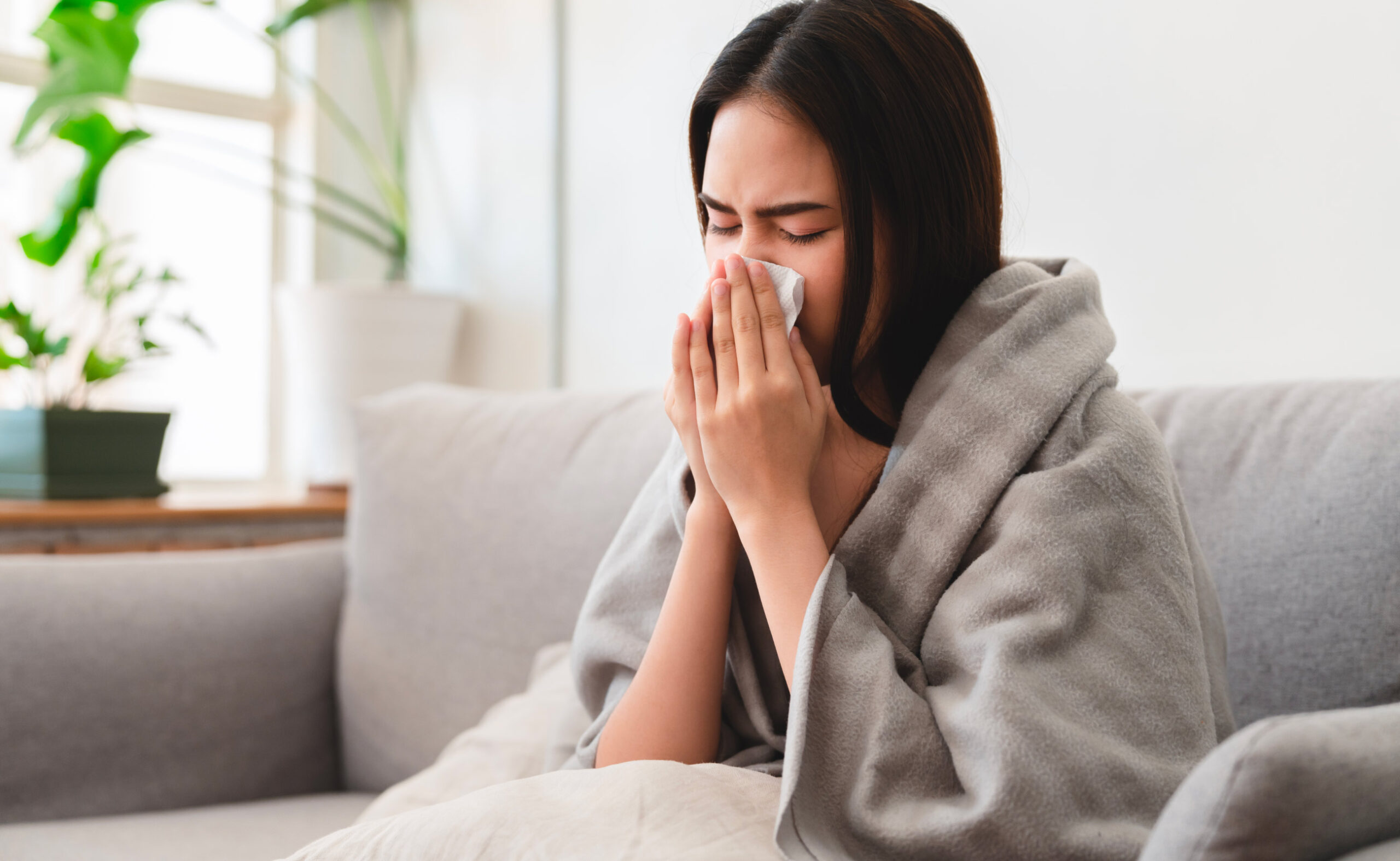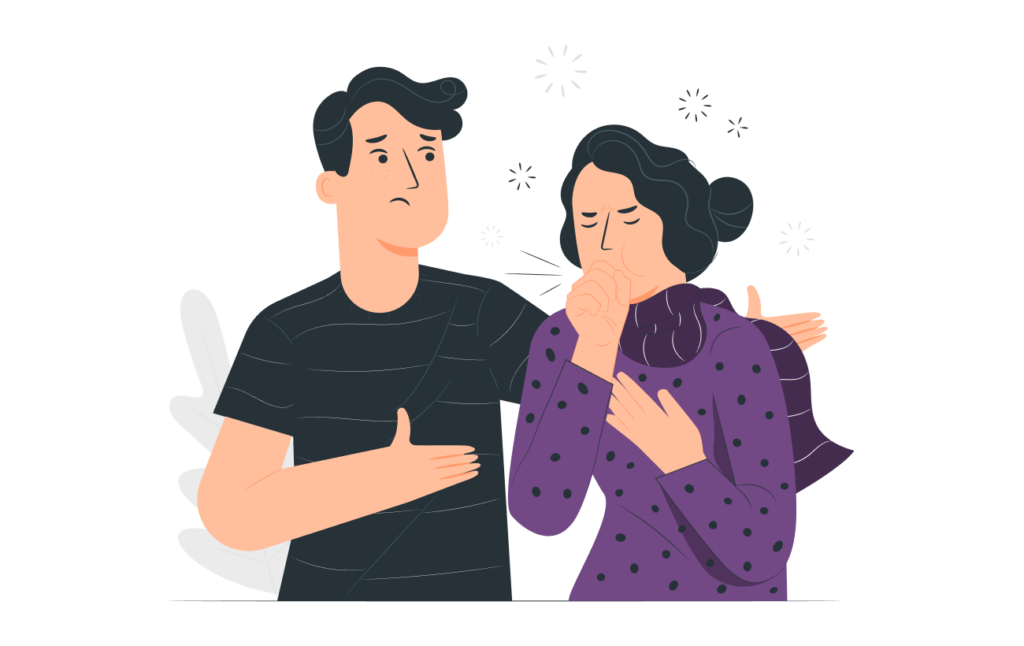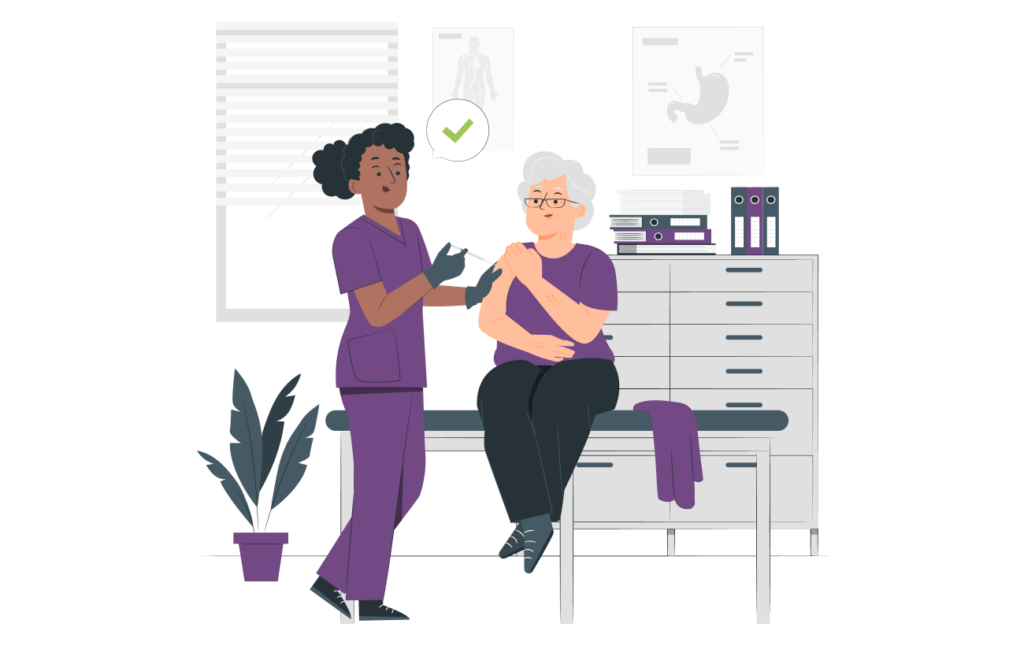Understanding RSV: Symptoms, Prevention, and Treatment

When leaves change color and the temperature drops, it means pumpkin spice and flannel shirts for many. But for some, it could mean the worry of seasonal viruses. Respiratory syncytial virus (RSV) is a common respiratory virus that usually causes mild illness, but can be severe for very young children, older adults, and people with medical conditions.
What is RSV?
RSV is a common respiratory illness caused by a virus. It spreads through contact with droplets from the infected person’s nose or throat when they cough or sneeze. Or through direct contact, like kissing. The virus can live on hard surfaces and skin for several hours. Like other respiratory viruses, RSV is most common in the fall and winter.
Who is at risk?
Anyone can be infected with RSV, however, there are certain individuals who are at more risk of developing serious illness and complications.
- Premature infants and infants
- Young children
- Older adults
- People with weakened immune systems
- People with chronic health issues such as heart disease, chronic lung disease, or diabetes
Symptoms
RSV symptoms are similar to those of the common cold, making it difficult to tell them apart. Typical symptoms of RSV are:

- Runny nose
- Coughing
- Sneezing
- Fever
- Wheezing
- Decreased appetite
In some cases, RSV infection can develop into pneumonia, especially in those who are very young, older adults, or who have weakened immune systems.
Symptoms normally start four to six days after being exposed and can last several days. Coughing may continue for a few days to several weeks.
People are normally contagious for ten days after the first sign of symptoms.
It is always a good idea to consult your doctor if you are feeling ill and if your symptoms progress.
Prevention
Like any virus, steps can be taken to help prevent RSV.
- If over 60 years of age, talk to your doctor right away about getting the RSV vaccine.
- If your child is younger than eight months, born during or entering their first RSV season, talk to your child’s doctor about receiving a dose of RSV antibodies.
- If you are pregnant, talk to your obstetrician about receiving the RSV vaccine to protect your baby when they are born.
- Teach children to cough and sneeze into a tissue or their elbow.
- Practice good hygiene. Wash your hands in warm water with soap for at least 20 seconds.
- Clean frequently touched surfaces often.
- Stay home from work or school if you are sick and until symptoms subside.
- Keep social distancing in mind. Consider wearing a mask when in a crowded area.
- Get an annual flu shot.
- Stay up to date with COVID-19 vaccines including the updated 2023-24 vaccine.
Treatment
Since RSV is a virus, it cannot be treated with antibiotics. Instead, you can take steps to relieve your symptoms:
- Use over-the-counter pain relievers and fever reducers like acetaminophen or ibuprofen.
- Get lots of rest.
- Drink plenty of fluids to prevent dehydration.
Always reach out to your doctor for the right care path for you or your child.
Vaccines
Two RSV vaccines, Arexvy and Abrysvo, were approved in June 2023 for adults aged 60 years and older. Abrysvo was also approved for pregnant women between 32 through 36 weeks of pregnancy, and recommended seasonally, September through January. The CDC recommends these qualified individuals receive a single dose of the RSV vaccine after discussing with their doctor. The RSV vaccine can be given at the same time as other vaccines.

RSV may be common, but with the proper precautions you and your family can stay healthy this fall and winter season.
Keeping tabs on preventive care can help you stay healthy, avoid or delay getting sick, and catch problems early when treatment is likely to work best. Most CDPHP® health plans cover preventive care including many immunizations at no cost. Check your member contract or Evidence of Coverage (EOC) for details.
This is not medical advice. Please consult your doctor if you are ill.
Sources:
https://www.health.ny.gov/diseases/communicable/respiratory_syncytial_virus/
 The Daily Dose
The Daily Dose
Comments are closed.